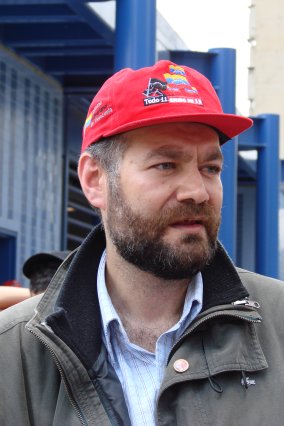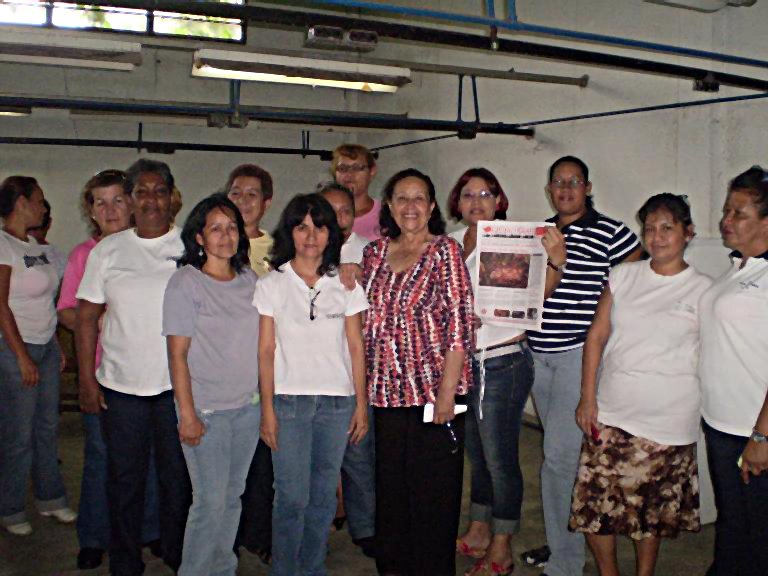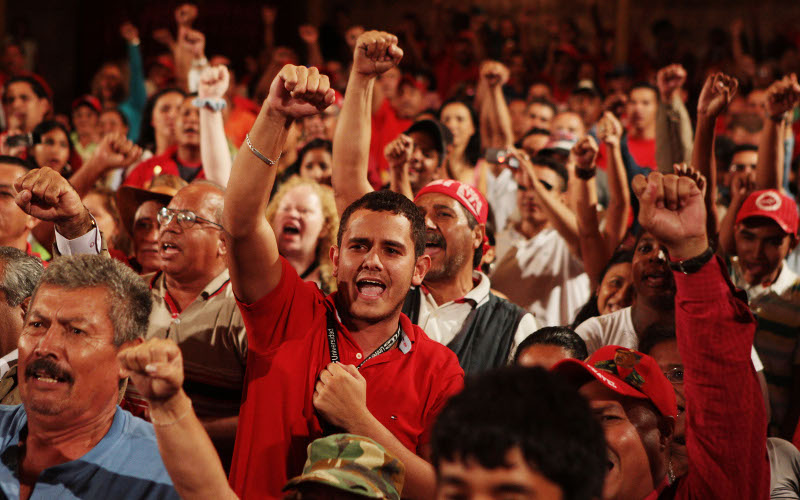After the alarm signals of the recent September 25 elections in Venezuela, a debate has opened up within the ranks of the PSUV as to why and how this could happen, and what needs to be done to strengthen and complete the revolution. Here we publish a contribution to that debate by Lucha de Clases, the Venezuelan section of the International Marxist Tendency.
The United Socialist Party of Venezuela (PSUV) is going through a phase of critical debate and reflection in order to refocus and strengthen the revolutionary forces. As we pointed out in our Manifesto, published on October 5, the election results of 26 September constitute a warning to all left activists. The opposition increased its percentage of the total vote and the distance between revolution and counterrevolution was decreased.
Although we won a simple majority in the new National Assembly, discontent with the slow progress of the revolution was expressed in higher levels of abstention in the traditional revolutionary strongholds and we lost a million votes compared to the 2009 Referendum on Constitutional Amendment reform.
An understanding of this situation is crucial if we are to grasp the significance of the new debate that has opened up among the critical sectors of the PSUV. Far from wanting to split or divide the party, the debate is a necessity if we are to prepare the party for the coming battles. After a result with such a small margin in absolute votes, hundreds of PSUV militants are asking themselves the obvious question: is the revolution irreversible? The gains of the revolution Barrio Adentro, Las Misiones, Mercal, PDVAL, etc. could we lose them all?
A necessary debate
 Eduardo Samán Lucha de Clases, the Venezuelan section of the International Marxist Tendency, has decided to open our website and newspaper for this debate to take place. We have published several letters from our readers and an interview with comrade Eduardo Samán, former trade minister, who stressed the need for a radical tendency within the PSUV (Venezuela: Interview with ex-Minister of Trade Eduardo Samán).
Eduardo Samán Lucha de Clases, the Venezuelan section of the International Marxist Tendency, has decided to open our website and newspaper for this debate to take place. We have published several letters from our readers and an interview with comrade Eduardo Samán, former trade minister, who stressed the need for a radical tendency within the PSUV (Venezuela: Interview with ex-Minister of Trade Eduardo Samán).
The interview has been read by thousands of people on our website and it has received more than 11,000 visits on Aporrea (Eduardo Samán: “Hay que construir una corriente radical dentro del PSUV” ) and has been circulated in groups of Twitter, Facebook and even by Venezuelan mainstream media. But more importantly, the interview has served to open up a thorough discussion on the need to organize those sections that are fighting for a PSUV which will serve the interests of the workers and poor.
Many comrades in various states across the country have sent in their contributions and comments, congratulating comrade Saman for having come out openly with his thoughts and criticisms. Hundreds of PSUV activists attended the public meetings with Saman in Valencia, Barquisimeto and in the Celarg Institute in Caracas. The fact that a leader with a certain mass following and a militant background, has come out with a critique from a leftist perspective, without sectarianism, has aroused a lot of enthusiasm withinin the PSUV vanguard.
Ideological clarity
In our opinion, it is absolutely correct and necessary to organize the PSUV comrades who want to fight for a party that serves the workers and the poor, that is a party without bosses and bureaucrats. But the first condition for this is that we have ideological clarity. First of all, we must ask: Why did we lose one million votes? Why did we fail to obtain the 110 deputies?
Far from showing a "low level of consciousness of the people", the result of the September 26 elections showed that the masses were punishing the reformist policy that does not serve to solve their basic problems. They are tired of empty words and speeches. They see that all the problems of the past are still there: inflation, lack of housing, high crime rate, and so on. They want action and practical measures to change the country and destroy the economic hegemony of the oligarchy.
The social programmes that the revolution has created, such as Mercal and Barrio Adentro have made great advances in providing some dignity to the lives of the Venezuelan people, but if we stick with the capitalist system, which means that the banks, land and industries such as food production and housing remain in the hands of the capitalists, we will not be able to offer a definitive solution to the problems affecting the people such as crime, the big housing shortage, hoarding and the increasing costs of foodstuffs and other basic consumer goods.
A fundamental and necessary demand is the expropriation of the monopolies, as the PSUV programme recently approved by the First Extraordinary Congress states. We cannot plan the Venezuelan economy if we let a group of capitalists and speculators continue to run the companies to fill their own pockets. It is also necessary to nationalise the banks, thus placing credit under the control of the state. In 2009 private banking sector earnings were US$2,615 million!
These grotesque figures should be discussed by the entire PSUV membership. While the national bourgeoisie complains about "the big losses of the banks" what we stand for as Marxists, is the nationalisation of all banks and the financial system to prevent crises like the one presently affecting the country.
It is not about nationalising small businesses or small property. As Alan Woods pointed out in his recent contribution (¿Adónde va la revolución venezolana? Una contribución al debate sobre la propiedad y las tareas de la revolución) to the debate, we only need to expropriate the commanding heights of the economy owned by a small group of oligarchs and multinationals.
How do we combat the bureaucracy?
 Maria León at the occupied factory of Gotcha It is obviously not enough to nationalise companies, it is also necessary to implement control mechanisms from below to prevent corruption and bureaucratisation. The Bolivarian government inherited the old machinery of the Fourth Republic, which has been one of the biggest obstacles to advance the revolution.
Maria León at the occupied factory of Gotcha It is obviously not enough to nationalise companies, it is also necessary to implement control mechanisms from below to prevent corruption and bureaucratisation. The Bolivarian government inherited the old machinery of the Fourth Republic, which has been one of the biggest obstacles to advance the revolution.
As Maria León, PSUV MP in Aragua, stressed in a recent interview with Lucha de Clases, "If there were not so many bureaucratic hands in the State apparatus, stopping resources from reaching the people, we would have been able to overcome the extreme poverty by now." (Entrevista a María León, diputada del PSUV por Aragua )
To begin with, it is necessary to implement WORKERS' CONTROL in the nationalised factories, to prevent any sabotage by former employers and any corrupt officials who may remain. What does Workers' Control mean? In the first place it means opening the account books of the companies for inspection by elected representatives of workers. This can reveal the employers’ commercial secrets and show how much profit is being made and then decide where to direct those resources.
In the second place, it means the democratic election of a workers' council as we have already seen in several factories, such as INAF, Inveval, GOTCHA, Grafitos de Orinoco, La Gaviota and others. These councils should be under the supervision of, and subject to recall by, the General Assembly of workers.
If the Venezuelan workers demonstrated that they could defeat a lockout in 2002 and since then also run companies, it is entirely possible that they can also lead the whole of society. We must demand free elections and right of recall of all the representatives of the PSUV and state officials. No state official should receive a wage above that of a skilled worker. In this way we ensure that representatives of our class do not rise above the conditions of working people.
Finally it is necessary to fully arm the people. We must participate in the National Reserve and turn it into a militia of workers, peasants and urban poor. If the US imperialists and their paramilitary stooges dare to encourage violence or even make a direct intervention, we would be much more prepared, if we had an armed movement on a national scale.
What now?
The organisation of all PSUV activists who want to fight for these demands, and any others that may arise in the debate, should, in our view, be made into something viable, something that really brings together all the critical comrades within the PSUV. We believe that a new tendency that brings together these sectors could be built under the slogan "For a PSUV of the workers and oppressed and without bosses."
It is extremely important that our approach is positive and militant at the same time. We cannot fall into sectarianism or hysterical denunciations. We are part of the party and fight as a loyal part of it, in order to combat the right wing. But precisely for this reason we must speak clearly and criticise what must be criticised. The best revolutionary is one who speaks with frankness and courage to rectify the errors committed.
We believe that the building of the tendency "For a PSUV of the workers and oppressed and without bosses" could take place through a widespread debate, starting at the level of the patrols [PSUV branches] and culminating in a national assembly. Lucha de Clases, the Venezuelan section of the International Marxist Tendency, is committed to being part of this debate and reflecting it in our pages.
It is our task as socialists to explain that against anarchy and chaos, against the permanent crisis of the system of private ownership of the means of production, against the consequences of an economy based on profit, we fight for a system based on collective socialist ownership, a socialist planned economy which addresses the needs and interests of working people and controlled by the people.
We invite all comrades of the PSUV to collectively come together to build a socialist programme for our party, to defend it at all levels of the Party and in its Youth, in order to build the PSUV as the instrument for the final victory of the Bolivarian Revolution.

